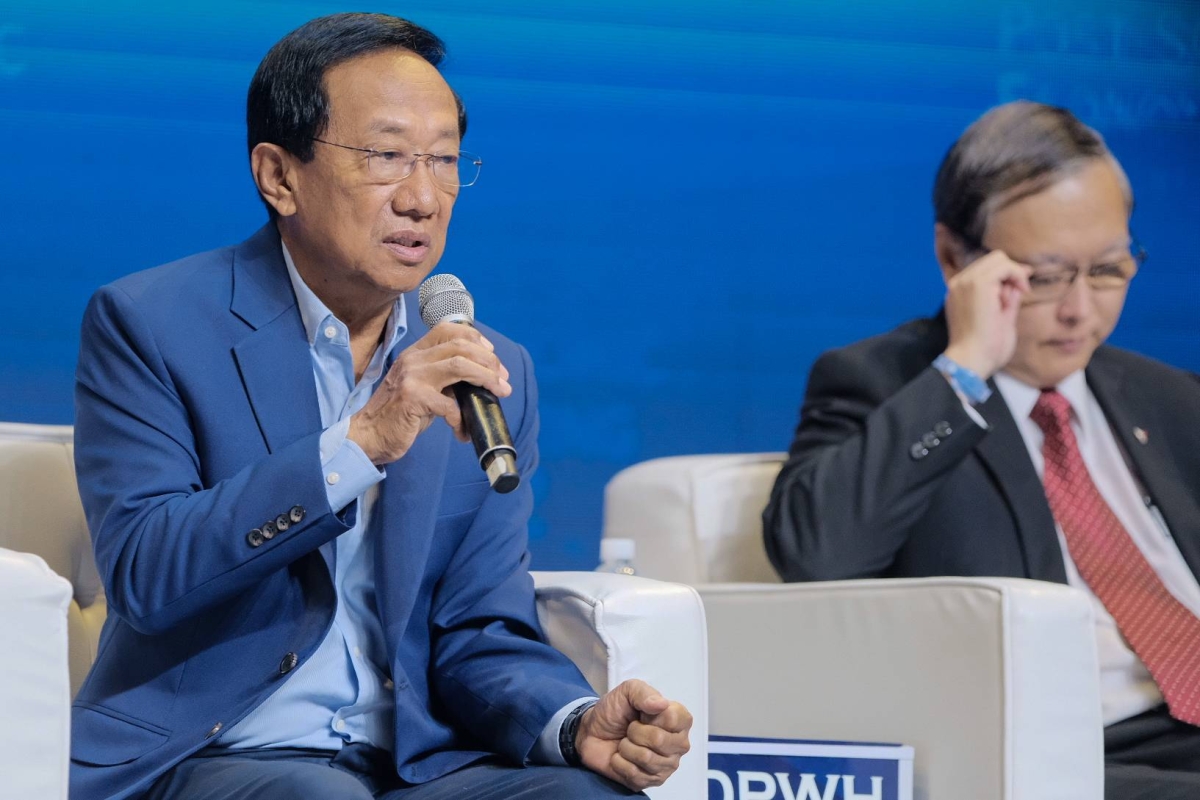$905M to fund Laguna lakeshore road project
(UPDATE) THE government has secured a $905.26 million, or about P54 billion, from South Korea to finance the initial implementation of the Laguna Lakeshore Road Network (LLRN) project. The LLRN, one of the government's flagship infrastructure projects, is designed to help decongest traffic in Metro Manila and the Calabarzon (Cavite, Laguna, Batangas, Rizal and Quezon) area. The official development assistance loan was granted by the Seoul government through the Export-Import Bank of Korea (Kexim). Public Works and Highways Secretary Manuel Bonoan said over the weekend the ceremonial exchange of loan agreement took place Friday at the Department of Finance office in Manila. It was attended by Kexim Executive Director Um Sung-Yong, South Korea's Ministry of Economy and Finance First Vice Minister Kim Beom-Seok, and Finance Undersecretary Joven Balbosa, and other key Philippine government officials. "The traffic decongestion program is one of the key strategic infrastructure programs of the department that is aligned with the 2023-2028 Philippine Development Plan and consistent with the President's 8-point socioeconomic agenda to reduce transport and logistics cost," Bonoan said. The daily traffic gridlocks in Metro Manila, particularly on EDSA, are estimated to cost the government at least P3.5 billion in lost opportunities. Similar traffic-easing projects in the pipeline include the 18-kilometer Metro Manila Skyway Stage 3, the 7.7-kilometer elevated NLEx-SLEx connector road, the 32-kilometer Southeast Metro Manila Expressway and the C5 South Link Expressway. Bonoan also mentioned the 44-kilometer Cavite-Laguna Expressway and the construction of new bridges crossing Pasig River and the Manggahan Floodway. Phase I Stage 1 of the LLRN includes a 7.94-kilometer road, consisting of 6.81 kilometers of viaduct/bridge and 1.13 kilometers of embankment, along with three interchanges plus 1.92 kilometers of slip roads. Work is scheduled to begin this year and the project is expected to be completed in 2029.

(UPDATE) THE government has secured a $905.26 million, or about P54 billion, from South Korea to finance the initial implementation of the Laguna Lakeshore Road Network (LLRN) project.
The LLRN, one of the government's flagship infrastructure projects, is designed to help decongest traffic in Metro Manila and the Calabarzon (Cavite, Laguna, Batangas, Rizal and Quezon) area.
The official development assistance loan was granted by the Seoul government through the Export-Import Bank of Korea (Kexim).
Public Works and Highways Secretary Manuel Bonoan said over the weekend the ceremonial exchange of loan agreement took place Friday at the Department of Finance office in Manila.
It was attended by Kexim Executive Director Um Sung-Yong, South Korea's Ministry of Economy and Finance First Vice Minister Kim Beom-Seok, and Finance Undersecretary Joven Balbosa, and other key Philippine government officials.
"The traffic decongestion program is one of the key strategic infrastructure programs of the department that is aligned with the 2023-2028 Philippine Development Plan and consistent with the President's 8-point socioeconomic agenda to reduce transport and logistics cost," Bonoan said.
The daily traffic gridlocks in Metro Manila, particularly on EDSA, are estimated to cost the government at least P3.5 billion in lost opportunities.
Similar traffic-easing projects in the pipeline include the 18-kilometer Metro Manila Skyway Stage 3, the 7.7-kilometer elevated NLEx-SLEx connector road, the 32-kilometer Southeast Metro Manila Expressway and the C5 South Link Expressway.
Bonoan also mentioned the 44-kilometer Cavite-Laguna Expressway and the construction of new bridges crossing Pasig River and the Manggahan Floodway.
Phase I Stage 1 of the LLRN includes a 7.94-kilometer road, consisting of 6.81 kilometers of viaduct/bridge and 1.13 kilometers of embankment, along with three interchanges plus 1.92 kilometers of slip roads.
Work is scheduled to begin this year and the project is expected to be completed in 2029.


















